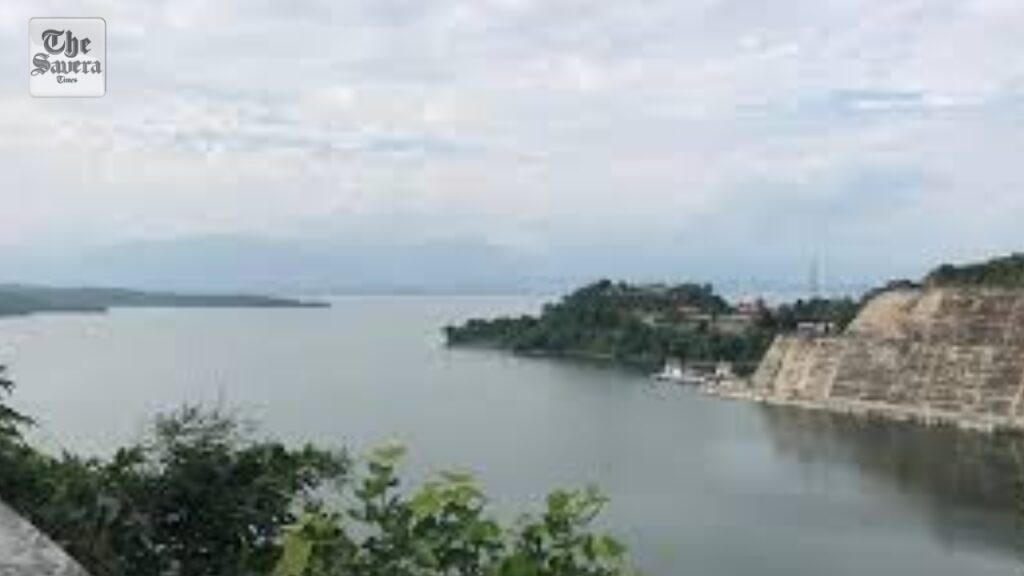Dam Breach in India Worsens Devastating Flooding
3 min read
A catastrophic breach at the Madhopur Barrage in India has intensified the flooding crisis in Pakistan’s Punjab province, leaving thousands displaced, property damaged, and bilateral tensions simmering amid allegations of negligence and treaty violations.
The situation took a dire turn on Friday when surging waters of the Ravi River breached two gates of the Madhopur Barrage, located in India’s Punjab state near the border with Pakistan. According to Indian media and the Reuters news agency, the collapse of the barrage’s central section led to an uncontrolled discharge of floodwater downstream, much of which spilled over into Pakistani territory, inundating parts of Lahore and nearby low-lying districts.
Videos aired by Indian news channels showed sections of the steel gates of the British-era barrage giving way under the relentless pressure of floodwaters, driven by what Indian authorities described as “incessant and unprecedented monsoon rainfall.” Officials in New Delhi confirmed the damage but denied any intentional move to divert floodwaters into Pakistan.
However, the explanation has done little to ease concerns in Pakistan. Officials from Pakistan’s Water and Power Development Authority (WAPDA) and the Punjab Disaster Management Authority (PDMA) suggested that India’s mishandling of the barrage and a unilateral suspension of water-sharing protocols under the Indus Waters Treaty (IWT) contributed to the disaster.
“We have not received timely notifications from India as required under the Indus Waters Treaty,” said a senior WAPDA official, requesting anonymity. “The sudden, massive inflow into the Ravi caught us off-guard. This is not just a natural disaster—it’s a man-made one.”
The Indus Waters Treaty, brokered by the World Bank in 1960, governs the use of water from six rivers shared by India and Pakistan. It mandates cooperation and prior notification between the two countries regarding any significant water-related developments. However, diplomatic sources claim that New Delhi has increasingly bypassed these protocols amid strained relations.
In Pakistan’s eastern Punjab province, the consequences have been severe. By Saturday morning, large parts of Lahore’s suburban areas, including Shahdara, Saggian, and parts of Ravi Road, were under several feet of water. Rescue teams and army units were deployed to evacuate residents stranded on rooftops or clinging to trees and power poles.
The PDMA reported that more than 30,000 people have been affected so far, with dozens of villages along the Ravi River submerged. Crops have been destroyed across hundreds of acres, and livestock losses are mounting.
In India, officials acknowledged the structural failure but dismissed accusations of deliberate flooding. A government source told Reuters that the damage to Madhopur Barrage was unintentional and efforts were underway to stabilize the water flow using the Ramkot Sagar Dam, located upstream.
“Two gates of the barrage were damaged due to excessive rainfall and rising river levels,” said the source. “We are doing everything in our power to manage the situation and prevent further downstream impact.”
As floodwaters continue to threaten both sides of the border, international observers are calling for renewed oversight of the Indus Waters Treaty. Several rights organizations and environmental experts have urged both India and Pakistan to depoliticize water-sharing mechanisms and focus on joint climate resilience strategies.




